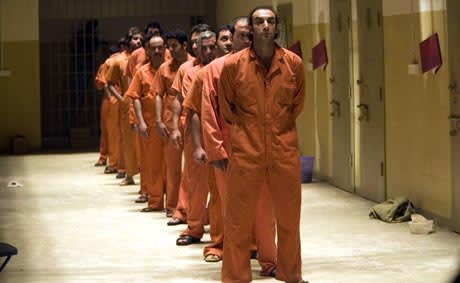Errol Morris is famous for disputing the factuality of accounts and photographs, and this time he courted controversy for uncovering the events surrounding Abu Ghraibs notorious images. He doesnt always make a strong claim for his po-mo concept but theres no denying that he destroys any notion that the torturers were "bad apples and not patsies set up by military elites. Morris interviews the military personnel convicted for the crimes, based, of course, on those appalling photos that shocked us into doing almost nothing even the notorious Lynndie England gets her say in describing the situations that led to the pictures being taken. Its revealed that one soldier wrote letters home about exposing the operation, only to go down in flames once the photos leaked. Some other times, apparently deliberate acts are claimed to be offhand gestures blown up by the pictures. Morriss conceit doesnt quite go as far as it ought to; he should have subordinated his usual concerns to the main issue of exonerating the soldiers who were walled up, given orders and dehumanized to the point where they dehumanized others. For once, the director has too much money and not enough sense, overproducing his famous re-enactments to the point of triteness, if not borderline offensiveness. Still, the film does its job, demolishing the notion that the torturers were rogue elements who operated alone, showing that the greater crime had been set up long before the soldiers arrived on behalf of a war machine uninterested in human dignity for colonist and colonized alike. Extras include a ponderous but effective commentary by Morris and reams of deleted scenes and interviews.
(Mongrel Media)Standard Operating Procedure
Errol Morris

BY Travis Mackenzie HooverPublished Oct 23, 2008